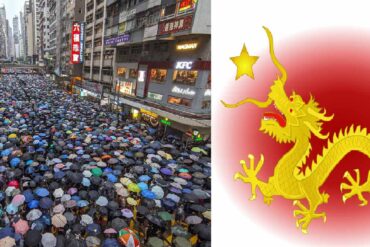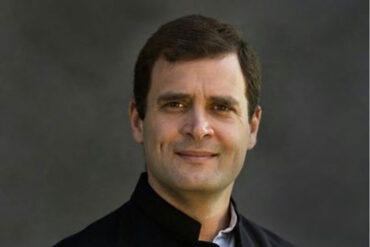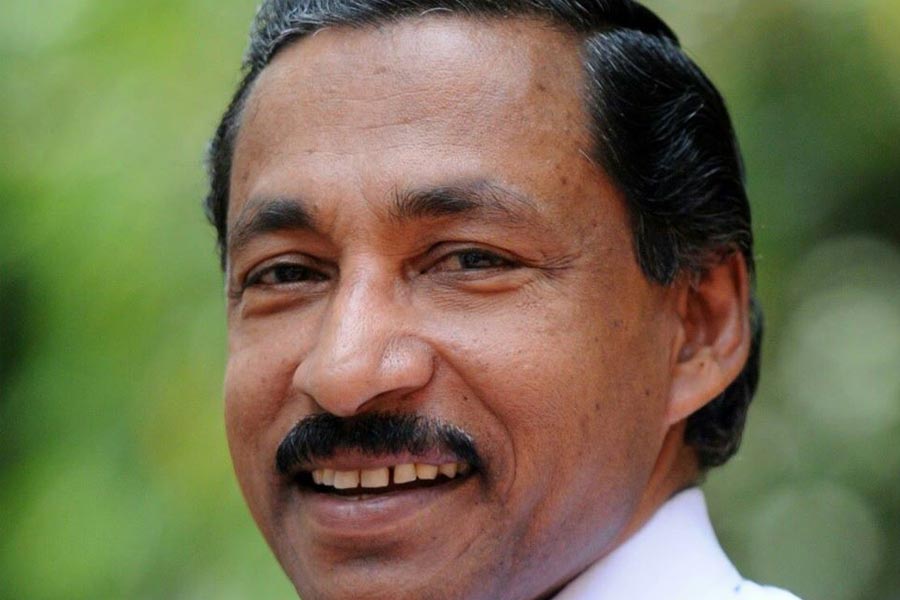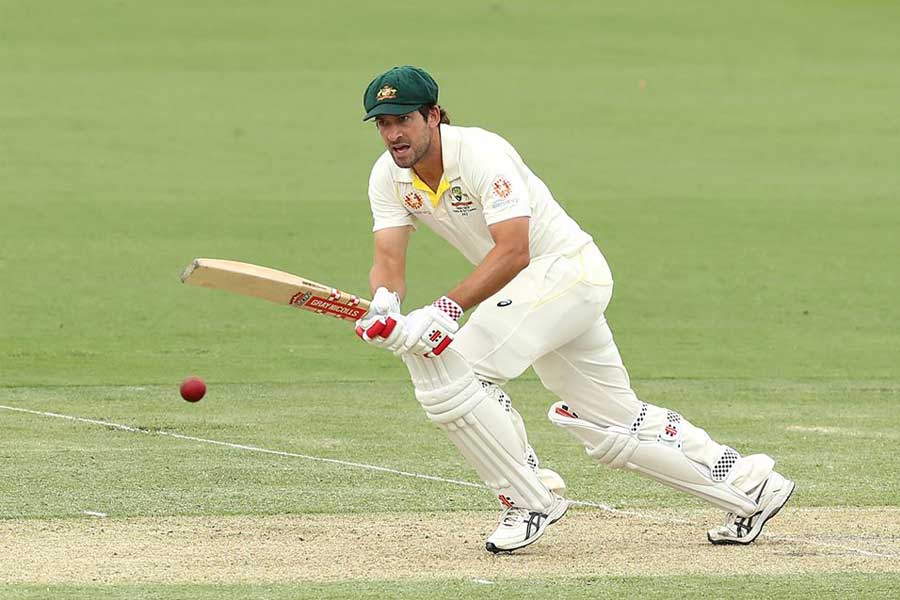The CPI (M) Kozhikode District Secretary, P Mohanan, loves to be in the limelight. And he has been in the limelight more than once—on both occasions, for the wrong reasons. The first time he was an accused in the T P Chandrasekharan murder case, a sensational political murder when a group of assassins belonging to the CPI (M) hacked to death the rebel leader seven years ago, on May 4, 2012. Mohanan was acquitted, but his reputation precedes him, and he was subsequently rewarded by being appointed the district secretary of the party in Kozhikode—despite opposition from a powerful section within the party.
As the leader of one of the most powerful political parties in Malabar, his performance has been lacklustre. Compared to the earlier occupants of the post, he was a political lightweight who was catapulted to the job mainly because he was on the winning side in the days of the severe internal rivalries in the party.
Mohanan comes from the hill regions of Nadapuram-Kuttiadi, a CPI (M) stronghold from the early sixties when the areas witnessed massive agitations and violent clashes between the agricultural labourers who belonged to the Kerala State Karshaka Thozhilali Union (KSKTU) under the firebrand leader A Kanaran and the local landlords who had substantial land holdings with coconut and arecanut plantations who maintained vigilante squads to handle labour disputes. The labourers were mainly from the lower caste Thiyyas while most landlords were Muslims who had also had stakes in businesses in Gulf countries like UAE, Qatar, and Bahrain etc. The clashes between the two groups often took a communal colour.
In the seventies, when the generation of young communists like Mohanan came on the political scene, the old slogans of land reforms had no more resonance as much of the land had been redistributed. The organised workers belonging to the KSKTU had become a force to be reckoned with in the villages and often they dictated the terms of employment to the weakened landowners, who had lost much of their wealth and political clout. The middle class was also rising in Kerala’s social scene and the virulent nature of the clashes in Nadapuram villages became a matter of serious concern for the CPI (M) leadership.
Young comrades like Mohanan came to political stage at the time, when they were encouraged to oppose the militant ways of the KSKTU comrades. One of the well-known incidents in the eighties was the social boycott imposed on a widow called Vineeta Kotayi and her daughters, who had a small land holding in the village. For some reasons, they fell out with the family of a powerful KSKTU leader, and the organisation declared a social boycott as was the practice in those days. No one was to attend to her work and all her coconuts were to remain on the trees. She could not climb up the trees on her own, nor could she hope to bring in labourers from other villages because that would mean instant retaliation of a violent nature.
But the nineties were different from the earlier decades. By this time, the CPI (M) state leadership had come to the conclusion that the political dividends of the land reforms were no longer sufficient to help them to capture power. The need for more sensible ways to garner public support was being discussed and the widespread feeling was that the party ought to attract wider sections of the society, and that meant mending its old militant ways.
That was the one occasion when the internal differences within the CPI (M) came out into the open. For the first time, younger local comrades came in defence of the widow and the party took the initiative to get her justice. People like P Mohanan took a leadership role in finding a solution to the long-drawn agony of the poor woman who had lived almost in isolation in her homestead for many years owing to the social boycott.
He was elevated to the district-level leadership of the party and was elected as president of the Kozhikode District Council, when an election for the new administrative set-up was held in 1991. His wife K K Lathika also became a member of the legislative assembly in 2011 from the Kuttiadi constituency. Once Mohanan was caught in the T P Chandrasekharan murder imbroglio, the public mood seems to have swung against the couple in these communist strongholds because Lathika lost to a Muslim League, candiate, Paraklal Abdulla, a Doha-based businessman, in the 2016 election which saw a massive turnout in favour of the LDF elsewhere in the state.
The prolonged inner-party struggles in the CPI (M), with the Centre For Indian Trade Unions (CITU) group that comprised old veterans like EMS Namboothirippad, E K Nayanar, Suseela Gopalan, M M Lawrence, T K Ramakrishnan and K N Ravindranath on the one side and the insurgents led by V S Achuthanandan and comprising of younger leaders like Pinarayi Vijayan, M A Baby, Kodiyeri Balakrishnan and others on the other, has had a very severe impact on the inner-party discipline in the CPI (M), with its old commitments to principled politics and a corruption-free public life taking a beating in the process.
The CITU group was thrashed at the 1998 Palakkad State Conference when nine members from the official panel for the new state committee, including a few central committee members, were voted out. The newly elected state committee was totally controlled by V S Achuthanandan and his group. It was during this period that people like Mohanan, who were closer to the younger breed of leaders who came to dominate the party, became prominent in Malabar politics. During the early 2000s when Achuthanandan was involved in a second round of inner-party struggles with state secretary Pinarayi Vijayan as the primary challenger, they took positions behind Pinarayi Vijayan, who ultimately took full control of the party organisation at the 2005 Malappuram state conference.
Those who remained loyal to state secretary Pinarayi Vijayan in the power struggle were then duly rewarded with coveted positions, within the party as well as in the administration when the party came into power during 2006-2011 and then again since 2016. During 2006-11, though a weakened Achuthanandan occupied the office of chief minister, all major appointments in the government and public sector undertakings and corporations and boards were controlled by the party state secretary from his office at the AKG Centre, not far from the Kerala state secretariat.
Hence there was no surprise when Mohanan came to occupy the post of secretary of the CPI (M) in a district which had seen very powerful and illustrious leaders like M K Kelu, a freedom fighter who is still remembered as Kelu Ettan, U Kunhiraman, a peasant leader from Vatakara, M Kelappan, agricultural workers leaders from Vatakara, K Moosakkutty, a trade union leader with a long history of organising the plantation workers, and T P Ramakrishnan, a trade union leader and presently minister for excise and labour, leading the party in the past. His position came as a reward for the long incarceration and court cases he had to face following his arrest as an accused in the T P Chandrasekharan murder case.
Unfortunately for Mohanan and his party, the stain of the blood that flowed from the Revolutionary Marxist breakaway leader from Onchiyam, the village where nine communists were shot dead by the police in a peasant uprising in the past, could never be wiped out. In the party he is still branded as a man with a sectarian past, and among the people he remains the man who had some part in the murder of a renegade Marxist in cold blood.
That is why his recent proclamations with regard to the arrest of two young party members at Pantheerankavu in the southern outskirts of the city is taken with a pinch of salt by the party supporters as well as the general public. Initially, he took the position that the arrest under the provisions of UAPA was unjust and the party would defend the youth, but within a day there was a swift turnaround when he found that the chief minister—who was present in the city on the day when the news of the arrest broke—was backing the overzealous cops.
Once the party rank and file protested, and even senior leaders Prakash Karat, Sitaram Yechuri and M A Baby openly voiced their concern over the use of UAPA, Mohanan has now found new ways to defend his opportunistic stand defending the police atrocities against his own party colleagues. According to him, Maoists are active in the district with support from Islamist fundamentalists, an argument that brings much cheer to the Sangh Parivar who could never find buyers for their pet theories about the threat from urban naxals and jihadi terrorists in Malabar. In fact, one of their favorite themes has been about a red-jihadi nexus in Malabar, implying that the CPI (M) had a tacit understanding with Islamists for political gains.
Now that the CPI (M)’s top functionary in Kozhikode, an area where Muslims have a substantial presence, the BJP and the RSS could take some legitimate satisfaction that their campaign had not been in vain. In Malabar, the people have generally rejected such conspiracy theories about secret alliances and have wholeheartedly supported Left candidates in the past. Now that the CPI (M) district leadership has practically abandoned two of their young cadres, both with Muslim parentage, on the charge of being conduits in a Jihadi-Maoist alliance, it could help the BJP to make some political capital out of it.
Who will be the ultimate losers? Not the Maoists who are contemptuous of democracy nor the jihadis who are not concerned about public support. No rewards for the correct answer.
Cover Image: P Mohanan (Facebook)







